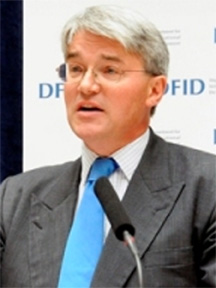The Department for International Development (DFID) has announc-ed key shifts in UK funding to international organisations and country programmes, saying its budget aid is now more focused and effective.
UK Development Secretary Andrew Mitchell yesterday unveiled the findings of a review into British aid, reporting that the new strategy will concentrate efforts on countries where UK aid will, pound for pound, achieve the best results in fighting poverty and building a safer world, and where Britain is in the best position to deliver results.

Mitchell, in a statement released on DFID’s website, emphasised that some increased help is linked to key in-country reforms.
However, he said that DFID will withdraw from other countries where the UK is not the best placed aid provider.
Mitchell, speaking on the new strategy, said: “Today I’m setting out plans which show how the people of Britain will be changing the lives of the world’s poorest people. This government is taking a radically different approach to aid. We want to be judged on our results, not on how much money we are spending.”
DFID’s new aid map will provide 50 million people with the means to help work their way out of poverty, Mitchell said, noting that key priorities for Britain’s aid will be: dramatically increasing the focus on tackling ill health and killer diseases; tackling malnutrition and getting children, especially girls, into school; dealing with the root causes of conflict; putting wealth-creation at the heart of programmes and helping people adapt to the effects of climate change.
Mitchell confirmed that Ethiopia will become Britain’s biggest bilateral programme over the next two years, and that Bangladesh will also see a big boost, with aid doubling in the next four years.
Guyana would be included in the regional programme for the Caribbean countries. DFID announced that it will increase support for the most effective agencies such as UNICEF, the GAVI Alliance for vaccinations and the Global Fund to Fight AIDS, TB and Malaria.
The Secretary of State also announced plans to re-allocate DFID’s funding to international organizations to get maximum value for taxpayers’ money.
He said it will end funding to four agencies which were rated as providing poor value for money, including the United Nations Industrial Development Organisa-tion (UNIDO); increase support for the most effective agencies, such as UNICEF; and put four poor performers, including the Food and Agriculture Organisation (FAO), on ‘special measures,’ insisting they take urgent measures to improve their effectiveness.
He pointed out that Britain will in future have bilateral aid programmes in a maximum of twenty-seven countries, which between them amount for 75% of global deaths during pregnancy and childbirth and nearly 75% of deaths from malaria worldwide.
Nearly two thirds of the programmes–and 30% of Britain’s overall aid budget–will be in conflict and fragile countries, according to the statement released by DFID. “The ultimate aim of this government’s aid policy is to end the need for aid, enabling countries to stand on their own two feet,” Mitchell said.
He said too that the Coalition Government is taking a tougher, more hard-headed approach on getting value for money in aid, adding,
“The British public must be able to hold us to account for our work. This is why we have set up an independent aid watchdog, to provide tough scrutiny of our spending, why we have introduced a new Aid Transparency Guarantee, and why we have cancelled £100m of low performing programmes.”





